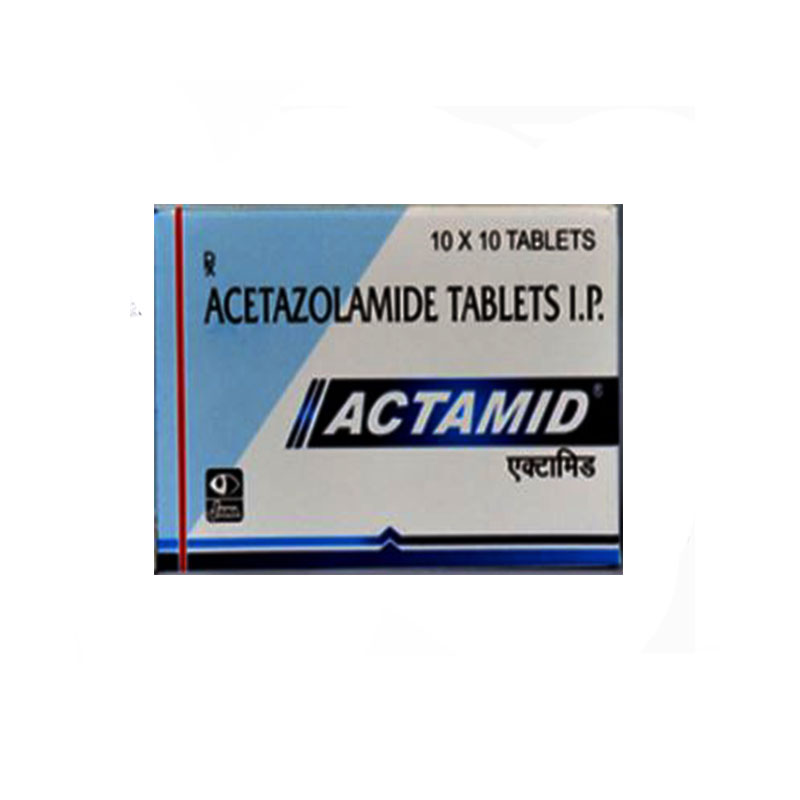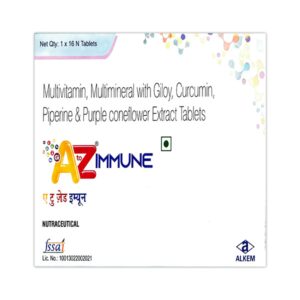Product Introduction:
Actamid Tablet contains the active ingredient Acetazolamide, a medication classified as a carbonic anhydrase inhibitor. It is commonly prescribed for various medical conditions, including glaucoma, altitude sickness, and certain types of seizures. Acetazolamide works by reducing the production of fluid in the body, thereby alleviating symptoms associated with increased pressure in specific organs.
You can take Actamid Tablet with or without food. The dose will depend on your condition and how you respond to the medicine. Try to take it at the same time each day. It is important to keep taking this medicine until your doctor tells you not to. Use this medicine regularly to get the most benefit from it even if you feel well.
The most common side effect is headache. Other side effects include feeling tired, dizziness, and taste change. Make sure you read the leaflet that comes with your medicines and tell your doctor if you are bothered by side effects or they do not go away. It may be possible to adjust your dose or try a different medicine. This drug is not recommended during pregnancy and you should ask your doctor before taking it if you have kidney or liver disease, heart trouble or diabetes.
Side Effects:
Common side effects may include tingling sensations, loss of appetite, nausea, vomiting, and increased urination. Serious side effects such as severe allergic reactions, rash, and blood disorders are rare but should be reported to a healthcare professional promptly.
Benefits:
Actamid Tablet offers several benefits depending on the condition being treated:
- In glaucoma, it helps reduce intraocular pressure.
- For altitude sickness, it aids in preventing and alleviating symptoms related to high-altitude exposure.
- In certain seizures, it may be used as an adjunctive therapy.
Usage Guidelines:
- Dosage and duration of treatment should be determined by a healthcare professional.
- Actamid tablets are typically taken orally, with or without food, as directed by the healthcare provider.
- It is essential to adhere to the prescribed dosage and not self-adjust without consulting a healthcare professional.
Drug Interactions:
- Actamid Tablet (Acetazolamide) may interact with other medications, including anticonvulsants, salicylates, and lithium.
- Inform your healthcare provider about all medications, supplements, and herbal products you are currently taking to avoid potential interactions.
Precautions:
- Inform your healthcare provider of any history of kidney or liver disease, electrolyte imbalances, or allergies before starting Acetazolamide.
- Exercise caution if you have a history of sulfa drug allergies, as Acetazolamide belongs to this drug class.
Warnings:
- Actamid Tablet may cause drowsiness or dizziness, so it’s advisable to avoid activities that require alertness until the individual’s response to the medication is known.
- In case of severe side effects or allergic reactions, seek medical attention promptly.
- Pregnant or breastfeeding individuals should consult their healthcare provider before using Acetazolamide.
This information provides a general overview, and it’s essential to consult with a healthcare professional or pharmacist for personalized advice based on individual health conditions and needs.
SAFETY ADVICE

Alcohol

Pregnancy

Breast feeding
Doses of up to 1000 mg daily produce low levels in milk and would not be expected to cause any harmful effects in breastfed babies.

Driving
.Actamid Tablet can occasionally cause short-sightedness, drowsiness or confusion which may affect your ability to drive.

Kidney
Use of Actamid Tablet is not recommended in patients with severe kidney disease.

Liver
Use of Actamid Tablet is not recommended in patients with severe kidney disease.
| Weight | 0.5 kg |
|---|---|
| Dimensions | 10 × 10 × 10 cm |




